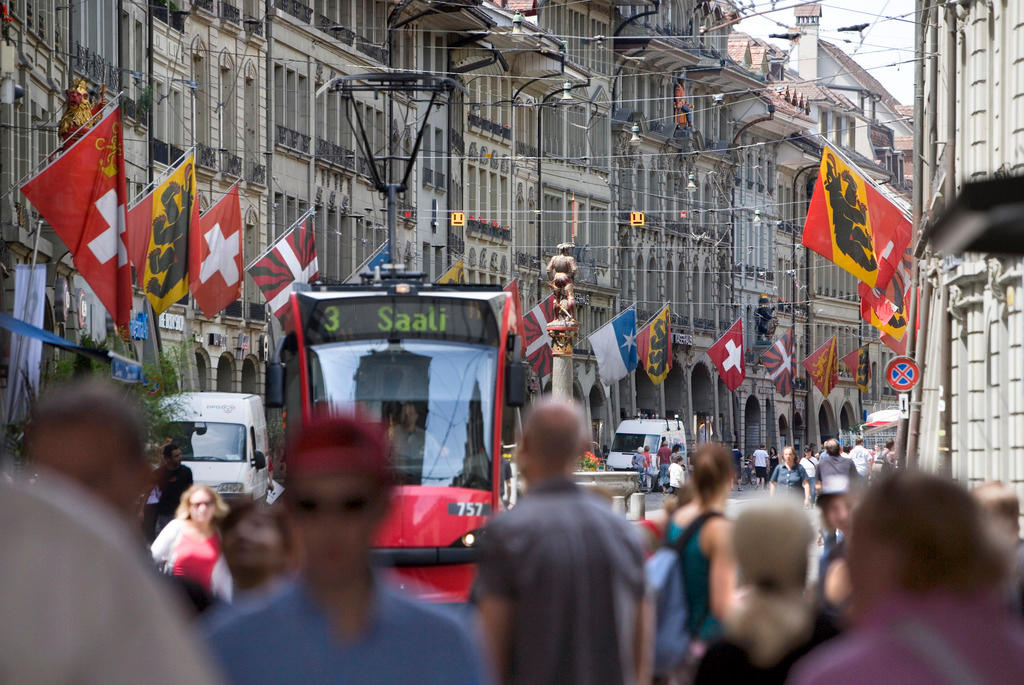Can one be refused a Swiss passport for being too Swiss?

Dutch-born Nancy Holten has lived in Switzerland since she was eight, speaks fluent Swiss German, has three children with Swiss passports, has no criminal record, doesn’t claim welfare and is politically active. A shoo-in for a Swiss passport? Wrong. Her neighbours have twice rejected her application.
Holten’s story is essentially one of personal beliefs versus tradition, set against a uniquely Swiss political backdrop.
Gipf-OberfrickExternal link is a rural municipality of 3,500 people in canton Aargau, northern Switzerland. Horse racing is popular there, as is sitting down to a Sunday roast with the sound of cow bells and church bells in the background.
However, this pastoral image of Switzerland is anathema to Holten, a vegan, who has repeatedly organised protests against horse racing, Sunday roasts and various bells.
As a result, when she applied, twice, to become Swiss – and the citizens of Gipf-Oberfrick were called on to give the thumbs up or down – the decision wasn’t even close. She says she was accused of not being integrated because she wanted to abolish these traditions.
“I was rather naive,” Holten tells swissinfo.ch. “I never thought about [the integration issue] – I just wanted to get involved in protecting animals. I didn’t realise that these things are traditions for many people. I now understand that.”
‘I felt like a criminal’
Naturalisation in Switzerland takes place at the municipal level. In some municipalities, the local authorities or parliament decide; in others, it is up to voters. Unfortunately for Holten, Gipf-Oberfrick is in the latter category.
Being present when local residents, often neighbours, weigh up the pros and cons of giving you a Swiss passport – in other words your strengths and weaknesses – is unsurprisingly not particularly pleasant.

More
How to get Swiss citizenship
“That was tough,” admits Holten, referring to applause that broke out when the result of her second application was announced. She adds that people who wanted to speak up for her were booed. “I felt like a criminal.”
Holten’s case is not a one-off. In 2014, a retired US chemistry professor was rejected, despite living and working in Switzerland for more than 40 years and raising his children in the country.
Holten has appealed and expects the cantonal government – which is believed to want to put an end to the whole business – to give its verdict in the next few months. She says that if she is naturalised directly by the authorities, she wants to become a politician.
These examples raise questions about direct democracy and the burden placed on people to fit in, especially in more traditional environments. Some people might say that someone who doesn’t like cow bells shouldn’t move to the countryside. Indeed, many residents of Gipf-Oberfrick are unhappy at how their village has been portrayed in the media, sometimes internationally.
What do you think about citizens deciding on whether other citizens should become Swiss? Let us know.
(Adapted from German by Thomas Stephens)

In compliance with the JTI standards
More: SWI swissinfo.ch certified by the Journalism Trust Initiative













You can find an overview of ongoing debates with our journalists here . Please join us!
If you want to start a conversation about a topic raised in this article or want to report factual errors, email us at english@swissinfo.ch.